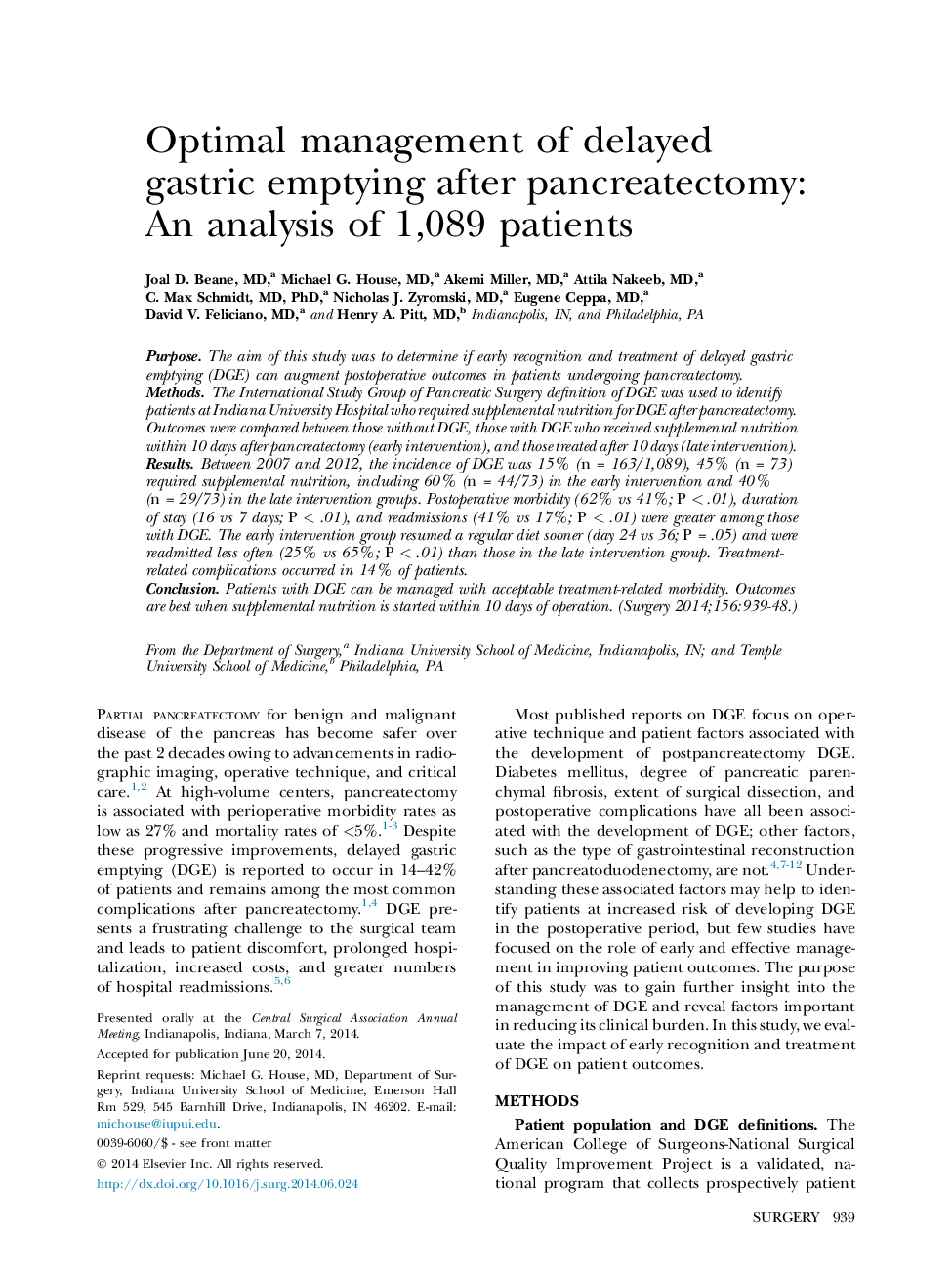| Article ID | Journal | Published Year | Pages | File Type |
|---|---|---|---|---|
| 4307647 | Surgery | 2014 | 10 Pages |
PurposeThe aim of this study was to determine if early recognition and treatment of delayed gastric emptying (DGE) can augment postoperative outcomes in patients undergoing pancreatectomy.MethodsThe International Study Group of Pancreatic Surgery definition of DGE was used to identify patients at Indiana University Hospital who required supplemental nutrition for DGE after pancreatectomy. Outcomes were compared between those without DGE, those with DGE who received supplemental nutrition within 10 days after pancreatectomy (early intervention), and those treated after 10 days (late intervention).ResultsBetween 2007 and 2012, the incidence of DGE was 15% (n = 163/1,089), 45% (n = 73) required supplemental nutrition, including 60% (n = 44/73) in the early intervention and 40% (n = 29/73) in the late intervention groups. Postoperative morbidity (62% vs 41%; P < .01), duration of stay (16 vs 7 days; P < .01), and readmissions (41% vs 17%; P < .01) were greater among those with DGE. The early intervention group resumed a regular diet sooner (day 24 vs 36; P = .05) and were readmitted less often (25% vs 65%; P < .01) than those in the late intervention group. Treatment-related complications occurred in 14% of patients.ConclusionPatients with DGE can be managed with acceptable treatment-related morbidity. Outcomes are best when supplemental nutrition is started within 10 days of operation.
